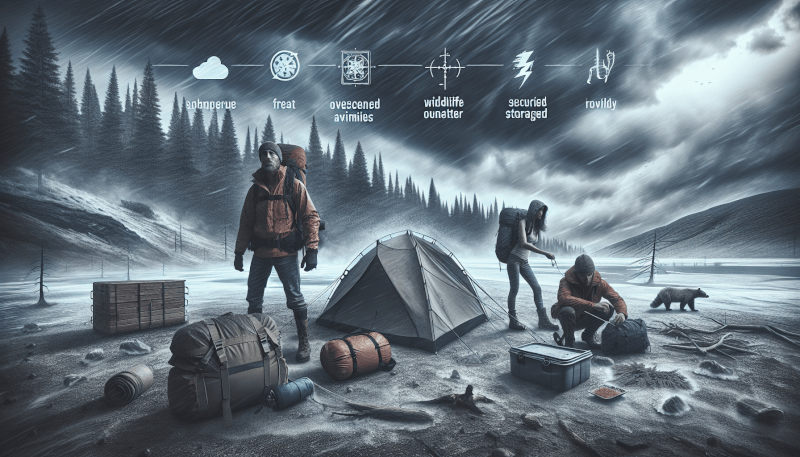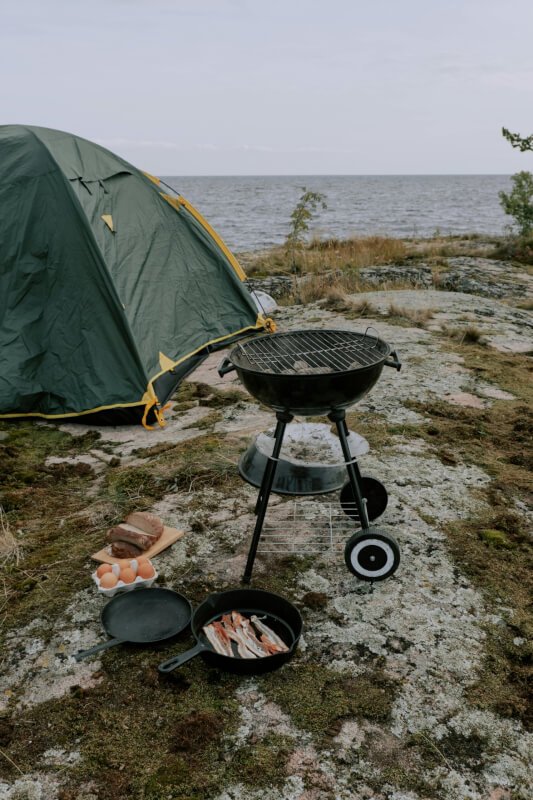Camping can be a thrilling adventure, but it’s not without its challenges. From setting up a tent in the pouring rain to battling pesky mosquitos, these obstacles can sometimes put a damper on your outdoor experience. However, fear not! This article will guide you through the top camping challenges and provide easy solutions to conquer them. Whether you’re a novice camper or an experienced outdoor enthusiast, be prepared to tackle any hurdle that comes your way and make the most of your time in the great outdoors.
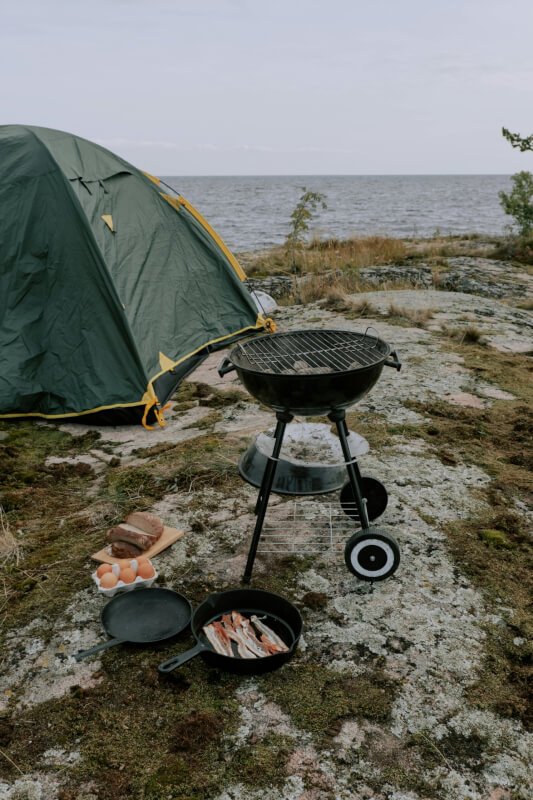
Insufficient Shelter
Choose the Right Type of Tent
When facing the challenge of insufficient shelter during camping, choosing the right type of tent is crucial. Consider factors such as the number of people camping, the weather conditions you might encounter, and the terrain of the camping site. Ensure that the tent you select is spacious enough to accommodate everyone comfortably. Look for tents that are easy to set up and pack away, as this will save you time and effort. Additionally, consider the durability and quality of the tent material, as well as its ability to withstand rain and wind.
Consider a Waterproof Tent
One of the biggest challenges campers face is unexpected rain showers. To overcome the issue of insufficient shelter during wet weather, investing in a waterproof tent is essential. A waterproof tent will keep you dry and protected from the elements, ensuring a comfortable camping experience. Look for tents that come with a rainfly or have a built-in waterproofing feature. These tents are designed to prevent water from seeping through, providing you with a cozy and dry sleeping space even during heavy rain.
Bring Extra Rain Gear
While a waterproof tent will offer protection from the rain, it’s always wise to be prepared for any situation. Pack extra rain gear such as rain jackets, ponchos, and waterproof boots. This will help you stay dry and comfortable while exploring the outdoors or attending to camp chores outside the tent. Having spare rain gear ensures that even if the weather takes an unexpected turn, you can continue enjoying your camping adventure without feeling damp and miserable.
Unpredictable Weather
Stay Updated on Weather Forecasts
Unpredictable weather can pose challenges during camping trips, but you can overcome them by staying updated on weather forecasts. Before embarking on your camping adventure, check local weather forecasts for the duration of your trip. Pay attention to any alerts or warnings regarding severe weather conditions. This will allow you to pack appropriate clothing and gear, adjust your itinerary if necessary, and be mentally prepared for whatever weather comes your way.
Pack Appropriate Clothing
To tackle unpredictable weather, packing appropriate clothing is crucial. Layering is key to adapting to changing temperatures. Opt for moisture-wicking and quick-drying fabrics that will keep you comfortable even if you get wet. Pack lightweight, breathable clothing for warmer weather and thermal layers for colder temperatures. Don’t forget to bring a waterproof jacket or a windbreaker to protect yourself from rain and wind. By being prepared with the right clothing, you can comfortably enjoy your camping trip, regardless of the weather.
Invest in a Good Quality Sleeping Bag
A good quality sleeping bag is essential for overcoming unpredictable weather conditions. Choose a sleeping bag that is suitable for the temperatures you expect to encounter during your camping trip. Look for bags with insulation that will keep you warm during chilly nights and consider those with a water-resistant exterior to guard against moisture. Additionally, be sure to bring a sleeping bag liner to add an extra layer of warmth and cleanliness. With the right sleeping bag, you can sleep comfortably and stay warm, even if the weather turns colder than expected.
Limited Storage Space
Use Space-Saving Packing Techniques
Limited storage space can be a challenge when camping, but there are several space-saving packing techniques you can employ. Roll your clothing instead of folding it to optimize space in your backpack or duffel bag. Utilize vacuum-sealed bags to compress bulky items and save valuable space. Packing cubes are also a great investment as they help keep your belongings organized and maximize the use of available storage. By employing these smart packing methods, you can make the most of limited storage space and have everything you need within reach.
Utilize Multi-purpose Camping Gear
Maximize your storage space by investing in multi-purpose camping gear. Look for tools and items that serve multiple functions, saving you from carrying unnecessary items. For example, consider a camping knife that includes a can opener and a corkscrew, or a camping cookware set with nested pots and pans to save space. Additionally, collapsible items such as pots, bowls, and cups are excellent space-saving solutions. By utilizing multi-purpose gear, you can optimize your storage space without sacrificing functionality.
Leave Non-Essential Items Behind
To overcome limited storage space, it’s essential to prioritize your camping essentials. Identify the items that are truly necessary and leave behind any non-essential items that would only take up valuable space. Consider the duration of your camping trip and the activities you plan to engage in. Avoid overpacking by being mindful of duplicates or items that can be easily replaced or improvised. By packing only the essentials, you can make the most of your limited storage space and avoid unnecessary clutter.
Lack of Comfort
Invest in a Comfortable Sleeping Pad
To overcome the challenge of lack of comfort while camping, investing in a comfortable sleeping pad is key. Sleeping directly on the ground can be uncomfortable and lead to a restless night’s sleep. Look for sleeping pads that offer sufficient cushioning and support for your body. Consider factors such as thickness, inflation options, and insulation for colder temperatures. Remember, a good night’s sleep is essential for enjoying your camping adventure to the fullest, so don’t overlook the importance of a comfortable sleeping pad.
Bring Pillows and Blankets from Home
Adding familiar comforts from home can greatly enhance your camping experience. Bring pillows and blankets from home to make your sleeping quarters feel cozy and inviting. Pillows provide support for your neck and head, while blankets offer an extra layer of warmth. These familiar items can help alleviate any discomforts associated with sleeping in a tent and provide a sense of familiarity and relaxation. By bringing these small comforts, you can create a more enjoyable and restful camping experience.
Create a Cozy Campsite Atmosphere
In addition to investing in comfortable sleeping gear, creating a cozy campsite atmosphere can significantly enhance your camping comfort. Set up a comfortable seating area with camp chairs and a portable camp table where you can relax, play games, or enjoy meals. Hang string lights or lanterns to provide cozy lighting in the evening. Consider bringing camping-friendly games or books to keep yourself entertained. By creating a cozy and inviting campsite, you can make your camping experience feel like a home away from home.
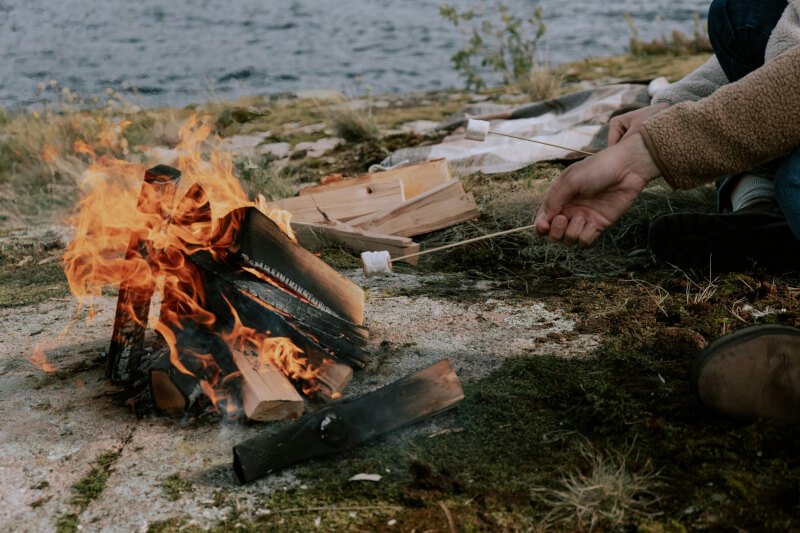
Difficulty in Starting a Fire
Carry Dry Firewood and Kindling
Starting a fire can be challenging, especially if the wood and kindling are damp or wet. Overcome this challenge by carrying dry firewood and kindling with you. Purchase firewood from a reliable source or collect dry wood beforehand and store it in a waterproof bag. Additionally, bring fire-starting aids such as firestarter sticks or dry tinder to help ignite the fire. By having access to dry firewood and kindling, you can ensure a successful fire-starting experience and enjoy the warmth and ambiance of a campfire.
Learn Proper Fire Starting Techniques
To confidently start a fire, it’s essential to learn proper fire-starting techniques. Practice using different methods such as the teepee or crisscross stacking techniques and experiment with various fire-starting approaches, including using matches, lighters, or fire starters. Additionally, learn how to build a fire safely by understanding proper ventilation, fire size, and extinguishing methods. By acquiring the necessary skills and knowledge, you can overcome the challenge of starting a fire and enjoy the benefits of having a campfire during your camping trip.
Use Firestarter Tools or Products
If you find it difficult to start a fire using traditional methods, consider using firestarter tools or products to simplify the process. Firestarter products such as fire starter cubes, gel, or sticks are designed to ignite easily and provide a sustained flame to start your fire. Alternatively, portable fire starter tools such as fire pistons or magnesium fire starters can be effective alternatives. By having these tools or products on hand, you can overcome the challenge of starting a fire and ensure a warm and enjoyable camping experience.
Bugs and Insects
Use Insect Repellent
To combat bugs and insects while camping, using insect repellent is essential. Apply insect repellent to exposed skin, following the instructions on the product label. Opt for insect repellents that contain DEET or picaridin, as these ingredients are known to effectively repel mosquitoes, ticks, and other biting insects. Additionally, consider using citronella candles or torches around your camping area to create an additional barrier against bugs. By taking these precautions, you can minimize the annoyance of bugs and insects and enjoy the great outdoors without constant pestering.
Wear Protective Clothing
Another effective strategy to ward off bugs and insects is to wear protective clothing. Cover exposed skin by wearing long-sleeved shirts, long pants, and closed-toe shoes. Choose lightweight and breathable fabrics that will still keep you comfortable in warm weather. Additionally, consider wearing clothing treated with insect repellent for extra protection. Wearing protective clothing not only prevents bug bites but also minimizes direct contact with pesky insects, enhancing your overall camping experience.
Keep Food Properly Stored and Sealed
To avoid attracting bugs and insects to your campsite, it’s crucial to keep your food properly stored and sealed. Store all food items in airtight containers or coolers to prevent smells from spreading and attracting unwelcome guests. Keep your campsite clean and free of food scraps or spills that may lure insects. Hang food or use bear-resistant containers if camping in areas prone to wildlife encounters. By practicing proper food storage and cleanliness, you can minimize the presence of bugs and insects and maintain a pest-free camping environment.
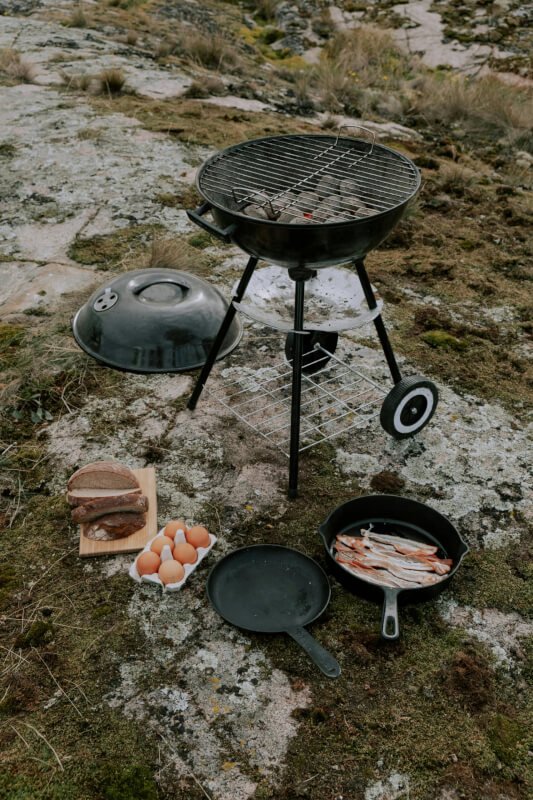
Limited or No Access to Clean Water
Bring Sufficient Water Supply
Overcoming the challenge of limited or no access to clean water requires careful planning and preparation. Always bring a sufficient supply of water for drinking, cooking, and personal hygiene. Calculate the amount of water you’ll need per day and ensure you have enough to last throughout your camping trip. Pack water in reusable containers or invest in portable water storage solutions such as collapsible water jugs. By having an ample water supply, you can stay hydrated and maintain good hygiene, even in areas where clean water is scarce.
Invest in a Water Filtration System
To further address limited access to clean water, consider investing in a water filtration system. Portable water filters or purifiers can effectively remove contaminants and bacteria from natural water sources such as rivers, lakes, or streams. Look for filters that are lightweight, easy to use, and have a high filtration capacity. This allows you to collect water from nearby sources and ensure its safety for drinking and cooking. By utilizing a water filtration system, you can expand your options for accessing clean water and enjoy a worry-free camping experience.
Learn Alternative Water Sources
In addition to bringing enough water and a filtration system, learning alternative water sources is essential when faced with limited or no access to clean water. Research the area you’ll be camping in and identify potential natural water sources, such as springs or rainfall catchment areas. Familiarize yourself with proper water collection techniques and purification methods, such as boiling or using water purification tablets. By having knowledge of alternative water sources and treatment methods, you can adapt and overcome the challenge of limited access to clean water during your camping trip.
Lack of Electricity
Use Solar-Powered Chargers and Lights
When camping in areas without electricity, utilizing solar-powered chargers and lights can be a game-changer. Invest in portable solar chargers that can harness solar energy to charge your electronic devices such as smartphones, GPS systems, or portable speakers. Additionally, bring solar-powered lights to illuminate your campsite during the evening. These lights can be charged during the day and provide illumination throughout the night. By relying on solar power, you can enjoy the convenience of electronics and adequate lighting while minimizing your environmental impact.
Bring Extra Batteries
Though solar power is a fantastic option, it’s always wise to have a backup plan. Bring extra batteries for your essential electronic devices or battery-powered equipment. This ensures that even if your solar-powered charger fails or the weather conditions limit sun exposure, you still have a power source. Prioritize the batteries for devices such as flashlights or headlamps, as these are essential for navigating your campsite in the dark. By having spare batteries, you can overcome the lack of electricity and maintain functionality for your electronic devices.
Minimize Electricity Usage
To overcome the challenge of limited or no access to electricity, it’s important to be mindful of your electricity usage. Prioritize the essential devices you need to power and minimize non-essential usage. Reduce screen time on electronic devices and avoid leaving lights or other battery-powered appliances on when not in use. By practicing energy conservation, you can extend the life of your battery-powered equipment and ensure you have sufficient power when needed. Adapting to a low-electricity lifestyle during camping not only overcomes the challenge but also allows for a more immersive and nature-centric experience.
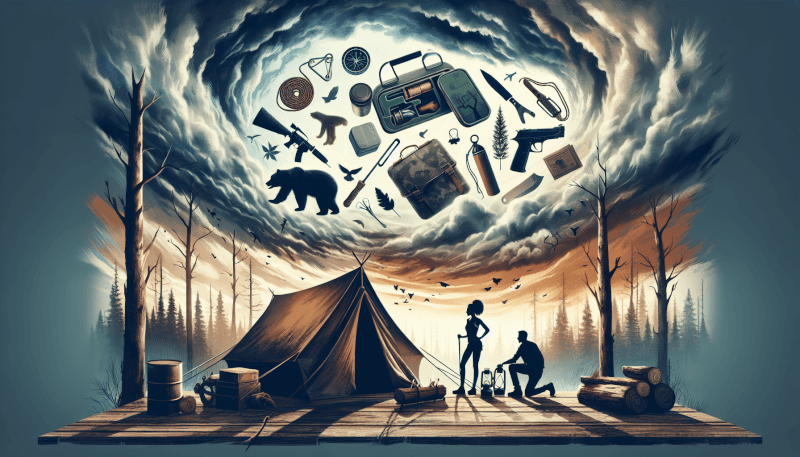
Cooking Challenges
Plan and Prep Meals in Advance
Cooking challenges can arise while camping, but proper planning and preparation can help overcome them. Before the trip, plan your meals in advance and create a camping menu. Consider the cooking equipment and utensils you have available, as well as the ingredients that will be easy to pack and prepare. Opt for meals that can be prepped or partially cooked at home to reduce preparation time at the campsite. Pre-chopping vegetables, marinating meats, or pre-measuring ingredients can save valuable time and make cooking a breeze during your camping adventure.
Choose Simple and Easy-to-Cook Recipes
Simplicity is often the key to success when cooking in a camping environment. Choose simple and easy-to-cook recipes that require minimal ingredients and preparation. One-pot meals or foil packet dinners are excellent options as they minimize the number of dishes to clean, making your camping cooking experience more efficient. Additionally, consider using pre-packaged seasonings or sauces to add flavor without the need for a wide range of ingredients. By selecting simple recipes, you can overcome cooking challenges and still enjoy delicious and satisfying meals while camping.
Bring Essential Cooking Utensils
To overcome cooking challenges, ensure you have all the essential cooking utensils you’ll need while camping. Pack a sturdy camp stove or portable grill, along with pots, pans, and cooking utensils suitable for outdoor cooking. Don’t forget to bring a can opener, a spatula, tongs, and a sharp knife. Having the right tools will streamline your cooking process and allow you to create a variety of dishes. By being well-equipped with essential cooking utensils, you can conquer cooking challenges and enjoy delicious meals while embracing the outdoor experience.
Safety Concerns
Research and Understand the Campground Rules
To overcome safety concerns while camping, it’s essential to research and understand the rules and regulations of the campground you’ll be staying at. Familiarize yourself with any specific safety guidelines or requirements provided by the campground management. Ensure you adhere to rules regarding campfires, wildlife encounters, quiet hours, and waste disposal. Understanding and following these guidelines will not only ensure your safety but also contribute to preserving the natural environment and promoting a positive camping experience for everyone.
Inform Others of Your Camping Plans
Another crucial safety measure is to inform others of your camping plans. Share your itinerary with a trusted friend or family member, providing details such as the campground you’ll be staying at, the duration of your trip, and emergency contact information. This ensures that someone knows your whereabouts and can raise an alarm if you fail to check-in or encounter any issues. By keeping others informed, you are taking proactive steps to prioritize your safety and well-being during your camping adventure.
Be Aware of Wildlife in the Area
When camping in areas with wildlife, being aware and respectful of the local wildlife is of utmost importance. Research the types of wildlife that inhabit the area and educate yourself about their habits and behavior. Understand proper wildlife etiquette, such as keeping a safe distance, not feeding or approaching animals, and storing food properly to prevent wildlife encounters. By being knowledgeable and respectful, you can minimize the risk of wildlife-related incidents and ensure a safe and enjoyable camping experience.
In conclusion, camping challenges can be overcome with proper planning, preparation, and the right approach. By choosing the right type of tent, staying updated on weather forecasts, utilizing space-saving packing techniques, investing in comfort-enhancing gear, and being prepared with essential skills and knowledge, you can overcome the various challenges that arise during camping. Additionally, by prioritizing safety measures, being mindful of wildlife, and respecting the environment, you can ensure a safe and memorable camping adventure that allows you to fully embrace the beauty of nature. So, gear up, plan ahead, and embark on your next camping trip with confidence, knowing that you have the tools and strategies to conquer any challenges that come your way. Happy camping!
